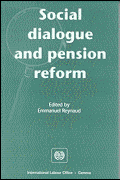Studies in this week’s Hutchins Roundup find that automation reduces overall employment, pension savings can crowd out private savings, and more.
Want to receive the Hutchins Roundup as an email? Sign up here to get it in your inbox every Thursday.
Does automation reduce employment?
Using data from 2010 to 2015 on 55,390 French manufacturers, Daron Acemogulu from MIT, Claire LeLarge from the University of Paris Saclay, and Pascual Restrepo from Boston University find that a 20 percentage point increase in robot adoption by firms—the average rate of robot adoption in their sample—is associated with a 3.2% decline in industry employment. Firms that adopt robots experience declines in their labor share and the share of production workers, as well as increases in productivity and value added. Since automation reduces their relative costs, they also expand employment, but at the expense of their competitors. The overall impact of robot adoption on industry employment and labor share is negative.
Mandatory pension schemes offset household savings
Anna Christiana d’Addio from the OECD, Muriel Roger from the Pantheon-Sorbonne University, and Frederique Svignac from the University Paris-Est Crétil find that one additional dollar of pension wealth reduces financial wealth by 53 cents. The reason that this occurs is because mandatory pension schemes induce households to reduce their precautionary savings. In order to explore the heterogeneity of this displacement effect, they use cross-country household-level data on wealth, income, socio-demographics, and pension entitlements for seven European countries. They show that the magnitude of the offset is smaller for individuals who are older, less wealthy, and have a higher risk tolerance. The authors emphasize that since their data are from 2014, their estimates should be interpreted in the context of the euro area sovereign debt crisis which led to several pension reforms. In particular, they are not able to investigate whether lack of confidence in the sustainability of the mandatory pension scheme influences household savings.
Winner-take-all prize structures may encourage novel innovations
Joshua Graff Zivin and Elizabeth Lyons from the University of California, San Diego, find that winner-take-all compensation schemes incentivize novel innovations more than compensation schemes that distribute the total payout across the ten best proposals. The authors organized an innovation contest in which participants were randomized into these two schemes and were asked to design solutions to facilitate sharing medical equipment across small providers in Mexico. Roughly half of the 184 participants decided to compete as a team and only a third ended up submitting a project, with no significant differences in submission rates between compensation schemes. Submitted projects were assessed by three judges based on their novelty, functionality, user experience, scope, and ability to solve the contest problem. Participants who submitted projects under the winner-take-all compensation scheme performed significantly better on the novelty measure than those who submitted under the ten-best proposals scheme, but did about the same on all the other evaluation criteria.
Chart of the week:
Quote of the week:
“We also have to gear up on climate change – and not only because we care as citizens of this world. Like digitalisation, climate change affects the context in which central banks operate. So we increasingly need to take these effects into account in central banks’ policies and operations. The ECB has already moved in this direction. First, we are working to extend our knowledge about the economic impact of climate change and ensure that its effects are better reflected in our economic analyses, models and forecasting methods. Second, through its financial stability tasks, the ECB is monitoring systemic risks stemming from climate change and the transition to a carbon-neutral economy. This work will ultimately enable us to test how well the euro area banking sector is able to withstand climate-related risks. Finally, the ECB has taken steps to align its own investment decisions with the objectives of the Paris Agreement. In our staff pension fund, for instance, we decided to switch to a low-carbon index, and we are investigating what else we can do in our market operations.” – says Christine Lagarde, President of the European Central Bank.










Commentary
Hutchins Roundup: Automation, mandatory pension schemes, and more.
February 13, 2020